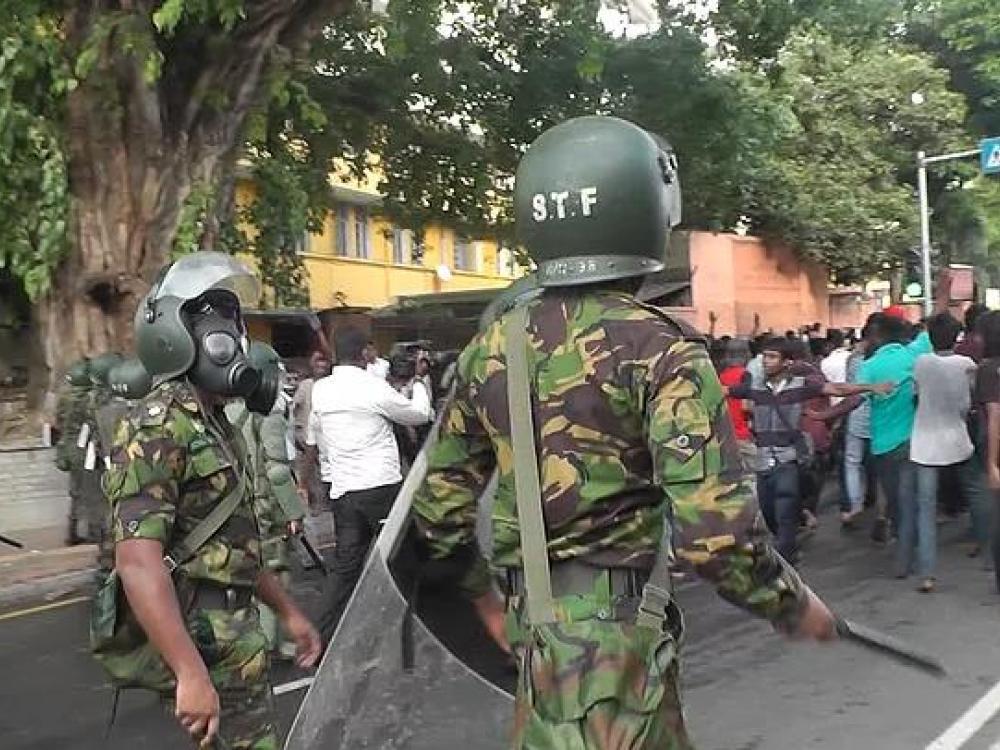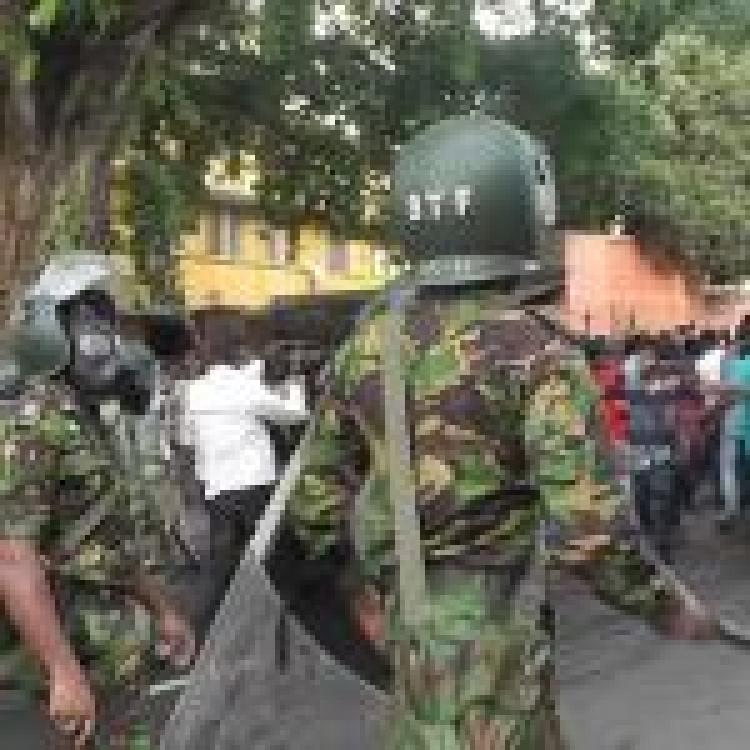Police Scotland has informed the UK High Commission in Sri Lanka that they will not extend their training contract with Sri Lanka’s police force in March 2022, when it is set to expire, due to ongoing human rights concerns.
Making this announcement Iain Livingstone, Chief Constable of Police Scotland, told Scottish authorities:
“Our training in Sri Lanka was suspended in early 2020. We have not deployed to Sri Lanka since that time, because the overseas Security and Justice Assistance assessment (OSJA), require a review to accurately reflect the current security and human rights issues in the region, which have changed since our initial deployment after the end of the Civil War in 2010.
The OSJA assessment review remains incomplete.
As such there will be no further deployments of Police Scotland officers to Sri Lanka during the remainder of the agreed period, which ends in March 2022.
In addition to we have written to the British High Commission in Colombo, Sri Lanka, to advise that we are not going to seek to renew engagement to support policing in Sri Lanka.
We remain, of course, committed to supporting the international development of policing services right across the world, so that we can enhance and enable human rights or we can underline the values that we hold dear of integrity, fairness and respect. Those values will always be at the heart of the work that we deliver in Scotland and at the heart of everything we do internationally”.

This announcement comes after years of campaigning for Police Scotland to terminate its programme with Sri Lanka which has been seen as a smokescreen for human rights abuses. Earlier this month, a joint letter from British and Scottish parliamentarians was sent to both the British High Commission and Police Scotland urging them to terminate the programme and to listen to the victims of police brutality in Sri Lanka.
"We believe it is vital that the voices of human rights campaigners and those who have either fled from or are still suffering state-driven violence in Sri Lanka are heard" the joint statement read.
The letter further detailed the ongoing abuses Sri Lankan officers are accused of engaging in:
“The persistence of longstanding and endemic patterns of custodial deaths, use of torture and other ill-treatment, and extrajudicial killings by law enforcement officials with impunity, [as well as] credible allegations through well-known human rights organizations of abductions, torture and sexual violence by Sri Lankan security forces... including in the past year, which need to be credibly investigated”.
A number of human rights organisations have supported the call to end this training programme which includes the International Truth and Justice Project (ITJP), Freedom from Torture, Pax Christi Scotland, and Human Rights Watch.
"This is a huge victory for those of us who have called since 2016 for a review of the training, in the light of credible allegations of ongoing torture," ITJP Executive Director, Yasmin Sooka said.
"Torture continues to be carried out by the police and army in Sri Lanka, despite all of the training - the international community needs rather to focus on accountability for torture rather than continuing to fund and support training and capacity building programmes which alone will not stop systematic abuse," Ms Sooka added.
In their report, Human Rights Watch maintained the need for international partners to suspend their engagement with “abusive Sri Lankan law enforcement agencies until there is demonstrated the political will to address the situation”.
Reacting to Police Scotland's announcement, investigative journalist Phil Miller, told Tamil Guardian:
"It's incredibly hard for the public to change British foreign policy towards any particular country. But after years of investigative reporting, painstaking research and dedicated campaigning by a growing number of people, Police Scotland has finally had to come to terms with the overwhelming evidence that its work in Sri Lanka was not helping human rights.
"In fact it made the situation worse, by lending legitimacy to a notoriously repressive police force. It remains to be seen whether the UK Foreign Office will accept this decision or instead rush to find another constabulary in Britain who will takeover from Police Scotland," he added.
Commenting on the decision, Sen Kandiah, Chair of Tamils for Labour stated:
“Various Tamil Organisations got together and went to Scotland to protest against the presence of the Sri Lankan President at the COP26 and also urged the Police Scotland to permanently stop the training of genocidal forces of Sri Lanka. We truly appreciate the thoughtfulness of the Police Scotland and specifically thank the Officer who worked with the Tamil Community.”
Read more from Police Scotland here.



